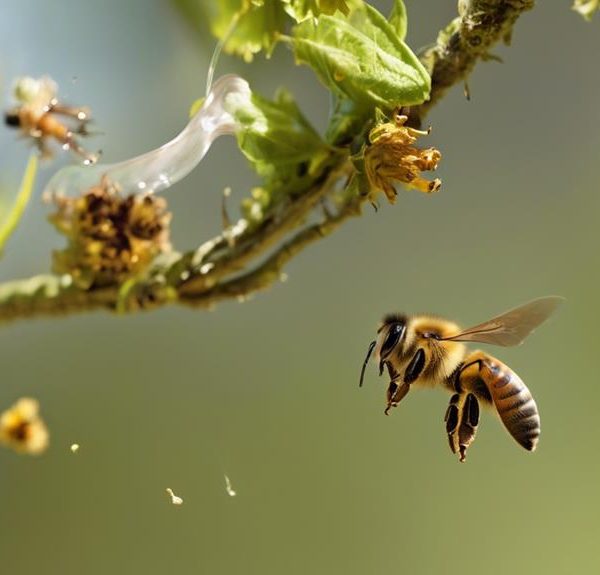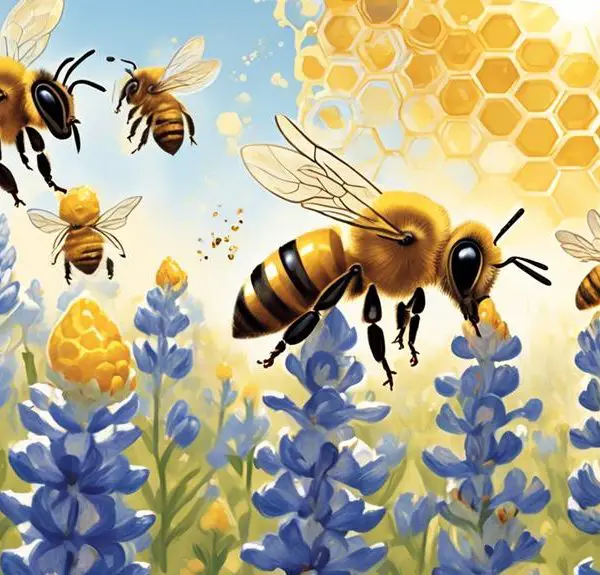Yearning to unravel the mystery of honey bees' classification and their impact on agriculture? Discover why they're not considered livestock and the implications of this categorization.
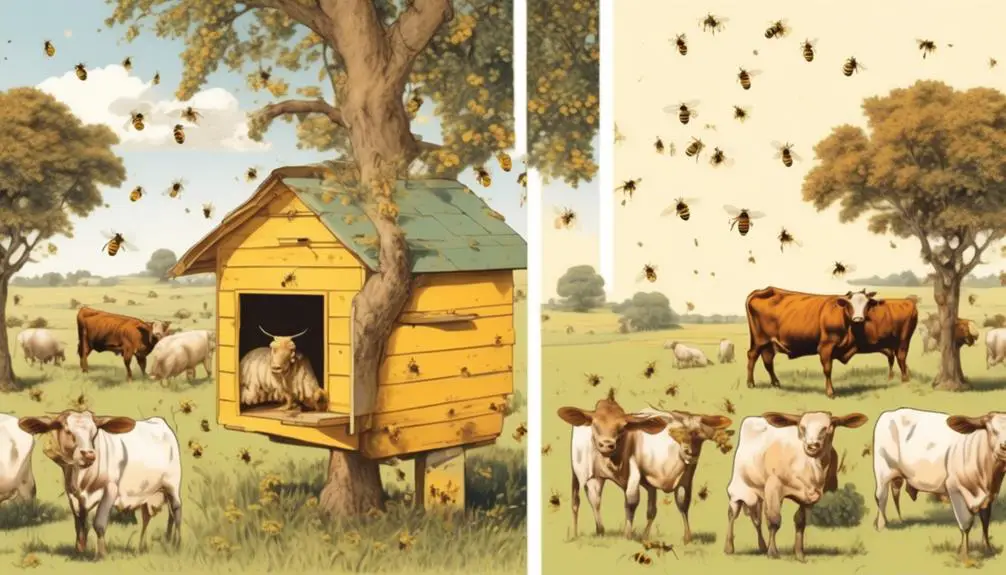
Are Honey Bees Livestock
Imagine you're a beekeeper in California, responsible for maintaining thousands of honey bee colonies, crucial for the almond orchards' pollination needs. Your operations contribute significantly to the state's $21 billion almond industry.
However, your bees are not legally recognized as livestock, a classification that could potentially provide you with certain benefits and protections. Why is this the case, and should it change?
This question opens up an interesting dialogue about the definition of livestock, the role of honey bees in agriculture, and the potential implications of reclassifying these industrious insects.
Key Takeaways
- Honey bees play a crucial role in agriculture by pollinating a variety of crops essential for human consumption.
- The economic impact of honey bees is significant, with their contribution exceeding $15 billion annually in the U.S. through pollination services.
- The legal classification of honey bees as neither strictly wildlife nor livestock has implications for conservation efforts and management practices.
- Recognizing honey bees as livestock could lead to improved regulations, conservation initiatives, and financial support for beekeepers, ultimately benefiting agriculture, biodiversity, and economy.
Defining Livestock: A Brief Overview
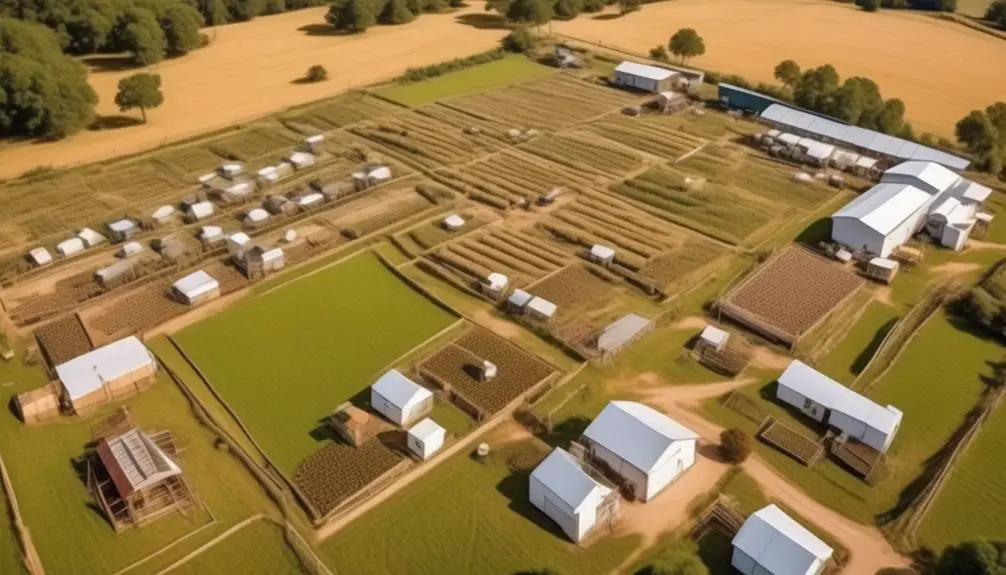
Before we dive into the debate of whether honey bees are considered livestock, let's first nail down what exactly we mean by 'livestock'. Traditionally, livestock refers to animals raised in an agricultural setting for commodities such as food, fiber, and labor. The term typically encompasses cattle, pigs, chickens, and sheep. Yet, it's not that black-and-white. The definition has expanded over time, including animals like fish in aquaculture or even insects for insect farming.
Now, you might be wondering, what determines if an animal qualifies as livestock? It's not just about the type of animal. It's about how they're used and managed. Livestock are often raised in controlled environments and their production is directly influenced by human activities. They're bred, fed, and cared for with the purpose of optimizing their value.
Honey Bees and Agriculture: A Crucial Role
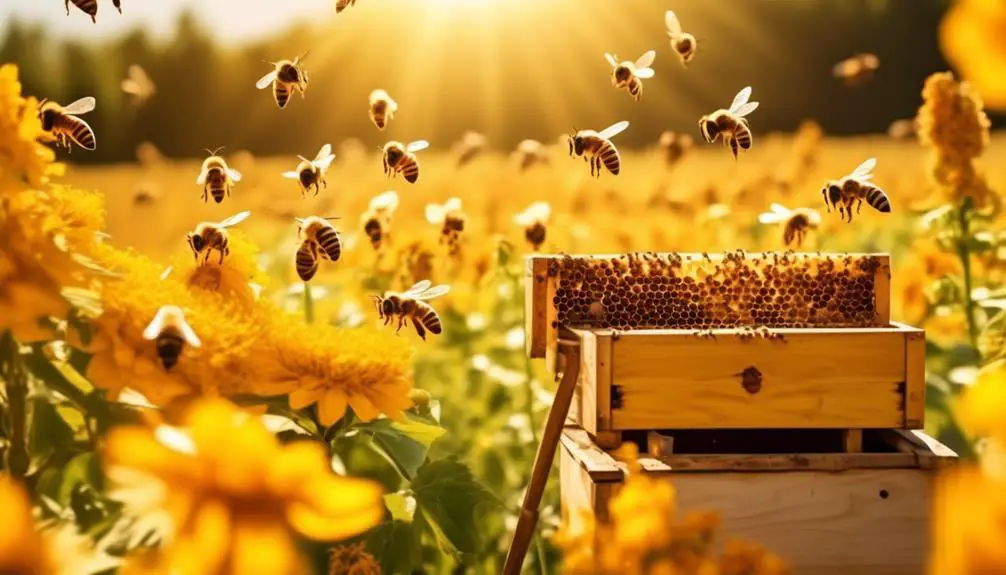
Stepping away from the traditional parameters of livestock, let's examine the crucial role that honey bees, a seemingly unconventional candidate, play in agriculture. You mightn't realize it, but these tiny creatures are indispensable for the food production process. They're responsible for pollinating a significant proportion of the crops we consume, from fruits and vegetables to nuts and seeds.
Without their diligent work, our food supply would dwindle dramatically. Imagine a world without apples, almonds, or avocados – that's a glimpse into a world without honey bees. Their pollination service has an estimated worth of billions of dollars every year in the U.S. alone.
However, honey bees aren't just about pollination. They're also prolific honey producers, which isn't only a popular food product but also a valuable commodity in industries such as cosmetics and pharmaceuticals.
There's more. Honey bees contribute to biodiversity, indirectly supporting other wildlife by helping plants to reproduce. This makes them essential to maintaining healthy ecosystems.
Economic Impact of Honey Bees
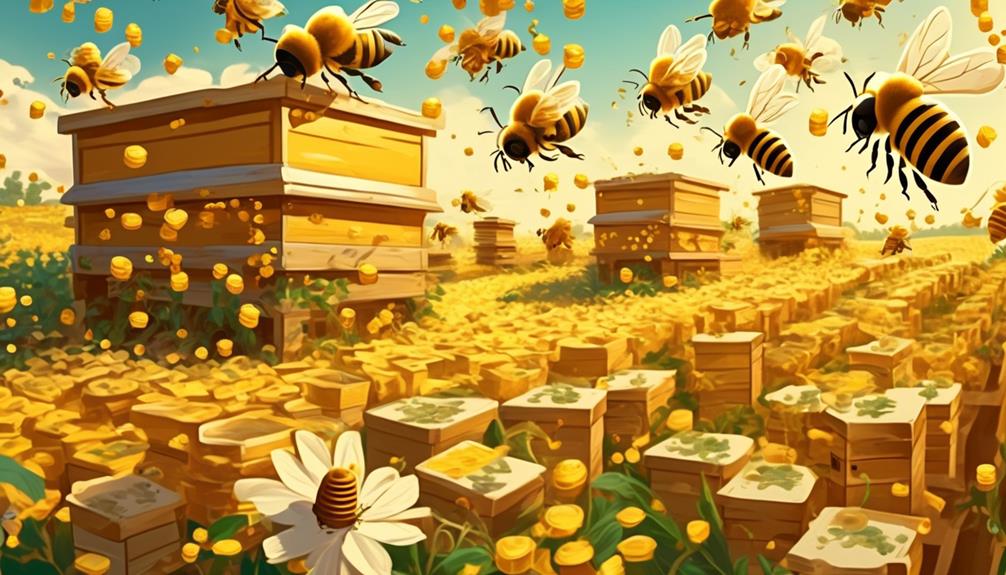
Diving into the economic impact of honey bees, you'll find that their influence extends far beyond their honey production and pollination services, reaching deep into various sectors of the global economy. They're not just honey producers; they're tiny titans of industry, indispensable to food production and environmental sustainability.
Let's consider this: A third of the food you consume relies on pollinators, primarily honey bees. Without them, you'd see a significant drop in the availability and diversity of fruits, vegetables, and nuts. It's estimated that honey bees contribute over $15 billion to the U.S. economy annually, just through their pollination services.
Beyond agriculture, honey bees also contribute to industries like cosmetics, pharmaceuticals, and even the culinary arts. Honey and beeswax are key ingredients in many beauty products, medicines, and gourmet dishes. Furthermore, the decline of honey bee populations can lead to increased costs for farmers, which in turn can raise food prices for consumers.
In essence, honey bees are small but mighty contributors to the global economy. Their decline isn't just an ecological problem; it's an economic one, too. So, the question you should be asking isn't if honey bees are livestock, but rather, can we afford to lose them?
Legal Perspectives on Bee Classification
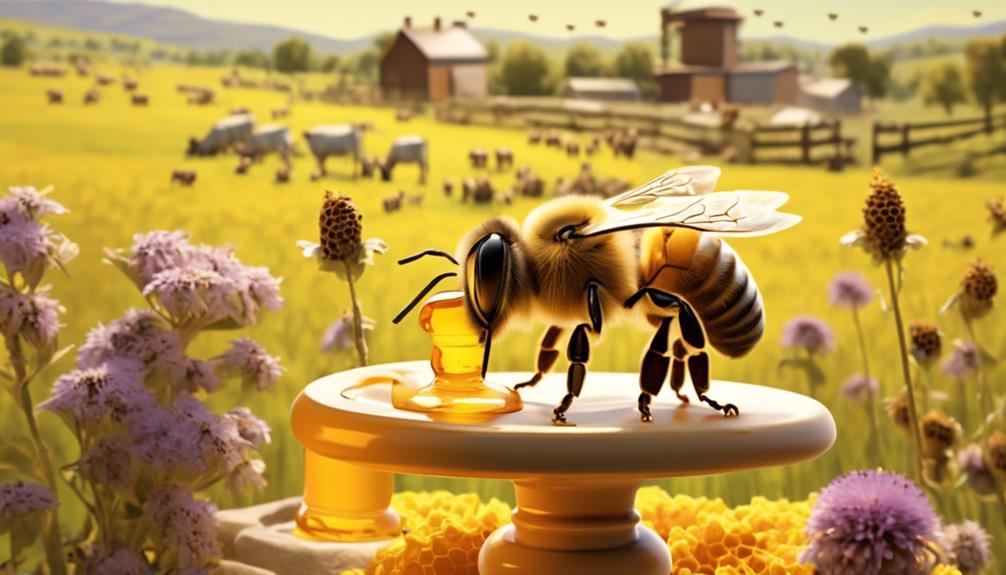
Given the substantial economic contribution of honey bees, it's worth exploring how various legal systems classify these creatures, which can greatly affect their conservation and management. In many jurisdictions, honey bees don't fall strictly into either wildlife or livestock categories, leaving their legal status somewhat ambiguous.
You see, the classification of honey bees as either livestock or wildlife has significant implications. For instance, if bees are legally considered livestock, they're subject to agricultural regulations, which can provide certain protections and benefits, such as subsidies or insurance coverage. On the other hand, if honey bees are classified as wildlife, they usually fall under environmental protection regulations, which can also have advantages, like habitat conservation measures.
However, there's no international consensus. In some countries, like the United States, bees are legally considered livestock. In others, like the United Kingdom, they're classified as wild animals. This lack of uniformity can complicate multinational efforts to protect and manage bee populations.
Implications of Recognizing Bees as Livestock
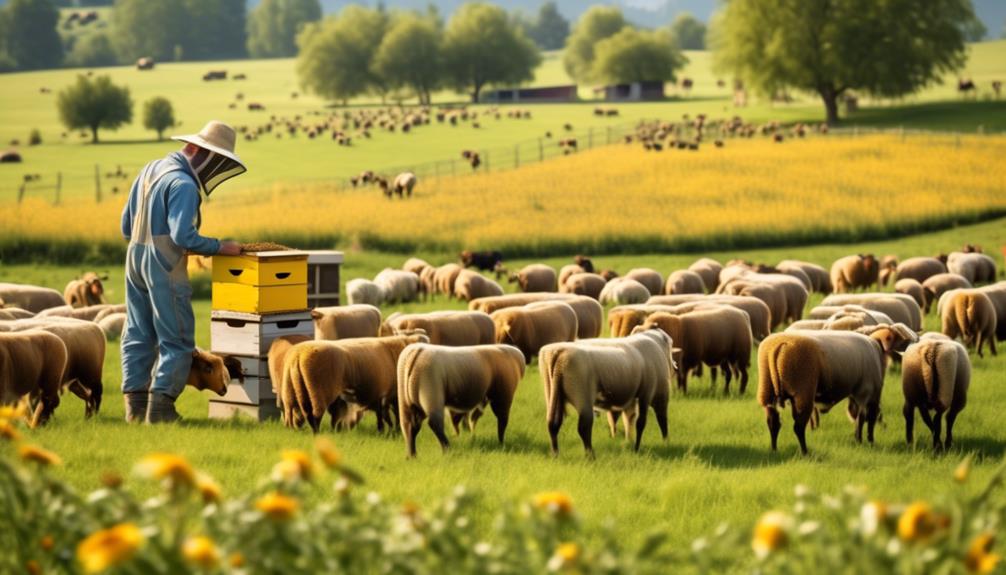
Recognizing honey bees as livestock not only shapes the legal framework around their management, but it also influences our agricultural practices, biodiversity conservation, and even economic policies. This classification can change the way we view and treat these tiny but mighty creatures.
From an agricultural perspective, the livestock label could lead to more regulated and humane beekeeping practices. You might see stricter guidelines on pesticide usage, which can harm bees, and more emphasis on habitat conservation. Bees play a critical role in pollination, and recognizing their importance can lead to more sustainable farming methods.
From a biodiversity standpoint, this recognition could prompt initiatives to preserve the variety of bee species. This could benefit our ecosystems greatly, as different bees pollinate different plants, maintaining a balanced and diverse environment.
Economically, bees as livestock could mean they're included in agricultural subsidies or insurance policies, providing financial stability for beekeepers and incentivizing more people to take up the profession. This could enhance honey production and pollination services, boosting our economy.
And so, the implications of recognizing bees as livestock are far-reaching, altering the way we manage our farms, conserve our biodiversity, and structure our economies.
Conclusion
In short, you'd see honey bees aren't traditionally classified as livestock. Yet, their pivotal role in agriculture and significant economic contribution makes them similar to livestock.
Legally, their classification varies. Recognizing bees as livestock could have profound implications, potentially benefiting their conservation.
So, are honey bees livestock? It's not a simple 'yes' or 'no'. It's a nuanced question, deeply entwined with our agricultural practices, economic systems, and legal frameworks.

